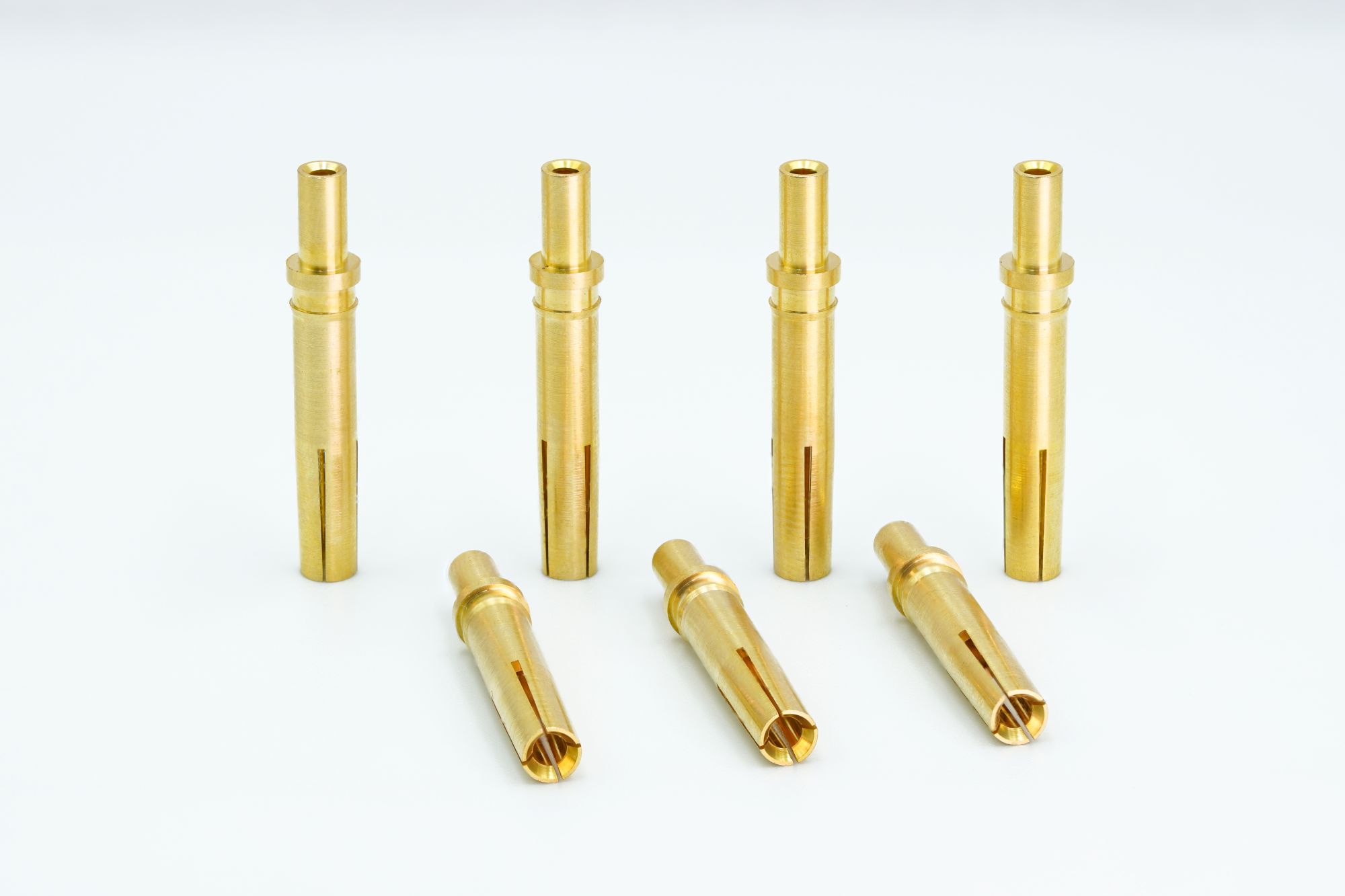By Franky Nguyen, AVF Decolletage
Introduction
Connector Pins and Sockets are the foundation of reliable electronic connections. They are present in every device, from aerospace avionics to medical diagnostics and automotive electronics. Without them, electricity and signals could not move between systems.
At AVF Decolletage, we design and manufacture connector pins and sockets with Swiss CNC and CAM machining. Therefore, our products meet strict global standards for accuracy and durability. As a result, industries worldwide depend on us for reliable performance.
What Are Connector Pins and Sockets?
Connector pins and sockets are the male and female contacts inside a connector.
-
Pins carry the current or signal.
-
Sockets receive and secure the pins.
When paired, they create a stable, low-resistance path that ensures uninterrupted performance. Moreover, their design directly influences reliability and efficiency.
Why Connector Pins and Sockets Matter
High-quality pins and sockets provide:
-
Stable contact – prevents interruptions and malfunctions.
-
Low resistance – supports efficient current flow.
-
Durability – ensures long service life, even after thousands of cycles.
-
Flexibility – adapts to aerospace, automotive, telecom, and medical uses.
For example, aircraft connectors must endure vibration and extreme temperature. In contrast, medical equipment connectors must remain precise and sterile. Consequently, design choices must reflect industry-specific challenges.
Materials for Connector Pins and Sockets
Material selection affects conductivity, weight, and strength. At AVF Decolletage, we use:
-
Brass Alloys (C36000, C17300, C54400, C19160, C18700, C38500).
-
Stainless Steels (303, 304, 316, 416).
-
Aluminum Alloys (AL6061, AL2017).
Each alloy has advantages. Brass provides conductivity, stainless steel ensures strength, and aluminum reduces weight.

Precision brass connector sockets manufactured by AVF Decolletage using Swiss CNC machining.
Applications of Connector Pins and Sockets
-
Aerospace – avionics, navigation, and communication systems.
-
Automotive – sensors, ECUs, and EV modules.
-
Medical Devices – diagnostic and surgical tools.
-
Telecommunications – 5G and fiber optic connectors.
-
Consumer Electronics – smartphones, laptops, wearables.
Design Considerations
Several design choices influence performance:
-
Geometry – pin length, diameter, and tip shape.
-
Plating – gold for conductivity, nickel for durability, tin for cost control.
-
Surface Finish – burr-free machining reduces resistance.
-
Tolerance – ±0.005 mm tolerances ensure reliable fits.
In addition, plating thickness and socket spring force affect overall efficiency.
Preventing Connector Failures
Connector failures can occur due to oxidation, vibration, or misalignment. However, they can be prevented by:
-
Applying protective plating.
-
Maintaining precise tolerances.
-
Choosing the right alloy for the environment.
Manufacturing at AVF Decolletage
Our process ensures quality at every step:
-
Swiss CNC & CAM machining for precision.
-
Secondary operations, including plating and heat treatment.
-
Testing, such as plating thickness and resistance measurement.
-
Traceability, where each batch is recorded and certified.
Learn about our quality system.
The AVF Decolletage Advantage
Customers choose us because:
-
We operate 350+ Swiss lathes (Bechler, Tornos, Star, Tsugami, Cincom).
-
We employ 400+ skilled technicians.
-
We follow ISO 9001:2015-certified systems.
-
We support high-volume production for global OEMs.
Future of Connector Pins and Sockets
The industry is moving toward:
-
Miniaturization – for IoT and medical wearables.
-
High-density connectors – for telecom and data transfer.
-
Smart connectors – with sensors for predictive maintenance.
-
Green applications – for renewable energy and EV charging.
As a result, AVF Decolletage invests in automation and R&D to meet these future needs.
Conclusion
Connector Pins and Sockets may be small, but they power global industries. By combining premium materials, Swiss machining, and ISO-certified quality, AVF Decolletage delivers components that keep aerospace, automotive, telecom, and medical devices running without failure.
Frequently Asked Questions (FAQ)
Q1: What are connector pins and sockets used for?
They create reliable connections in aerospace, automotive, medical, and telecom devices.
Q2: Which materials are best?
Brass for conductivity, stainless steel for strength, aluminum for lightweight parts.
Q3: How are connector pins and sockets manufactured?
With Swiss CNC and CAM machining, plating, and ISO-certified QC.
Q4: Why choose AVF Decolletage?
Because we combine capacity, technology, and ISO certification for global OEMs.
Q5: Do you provide custom connector solutions?
Yes, we design and manufacture both standard and custom pins and sockets.


